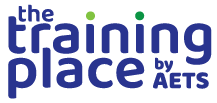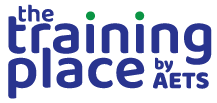
- This event has passed.

Objectives:
• Increase knowledge and provide for a common and unambiguous understanding of EU legislation and its’ consistent and harmonised implementation across the EU and associated countries;
• Improve understanding and exchange the knowledge of the new, modern, risk-based approach in all areas covered by the scope of the Regulation (EU) 2017/625;
• Share the best practices and increase the general awareness of, and level of preparedness for, the EU regulatory framework for official controls along the agri-food chain;
• Disseminate the findings of the seminar as relevant and implement the possible solutions with respect to official controls and other official activities to be carried out in the Member States and associated countries as of 14 December 2019;
• Strengthening the Commission’s priority’s in the area of the European Green Deal and the Farm to Fork strategy for a fair, healthy and environmentally friendly food system.
Program:
Day 1
Day 1 is designed to emphasize the importance of the new official controls approach and explain the coherence between the sectors on food and feed safety, animal health, animal welfare, by-products and derivate products, plant health and plant protection products, organic production, PGI and PGO. Training program is divided in three separate sessions.
Day2
The second day of the training will present the risk-based planning and detection of fraud and regime for sanctions and penalties for fraudulent or deceptive practices with the focus on all areas of the OCR. The scope of the OCR has been extended to cover the food fraud or fraudulent or deceptive practice. How to develop the structures reporting mechanisms necessary to capture the signals of agri-food fraud analyze and identify the appropriate response.
The day will end with analysing the Enforcement actions by the competent authorities , the actions in the event of established non-compliance, procedures and methods to be used, how to react and deal with situations posing a risk to public health, animal and plant health
Day3
The third day of the training will open with discussion on collaboration between competent authorities and operators, and there will be insights on tackling official controls on animals and goods entering the Union, organization and management of official controls animals, products on animal origin, germinal products, by-products products, food and feed of non-animal origin and composite products.
Day4
will cover the topic on general principles of financing of official controls and of other official activities, obligation of the collection of mandatory fees or charges, possible to set the other fees or charges, the cost calculation criteria, collection and application of fees or charges and the transparency provisions on the collection of fees or charges. The day will continue on discussing aspects to cover on the official control laboratories, including reference laboratories, and on methods of sampling, analysis, tests and diagnosis used for official controls as well as to other official activities
Selection procedures:
The training is addressed to both to officials from relevant competent authorities involved in policy making, planning and control activities (at central or regional level), and field inspectors involved in such control activities, including border control post staff, Plant Health Officers, Animal Health Officers, Food inspectors etc.
Participant must:
Have a sufficient level of language: in order to ensure the transfer of knowledge and opportunities to exchange views, participants should master the language of the training session for which they applied, if not specified otherwise the official language of the workshops will be English.

